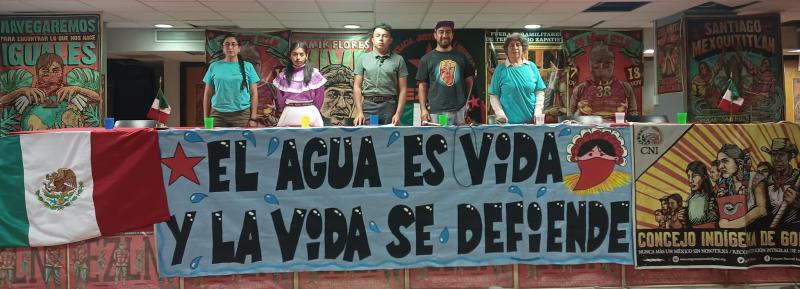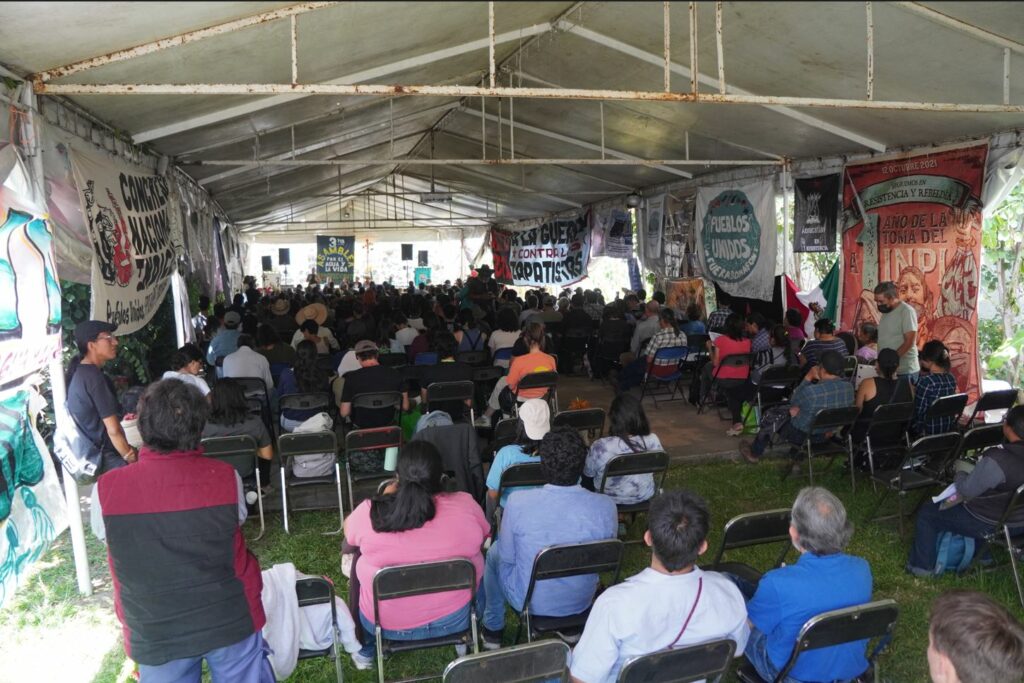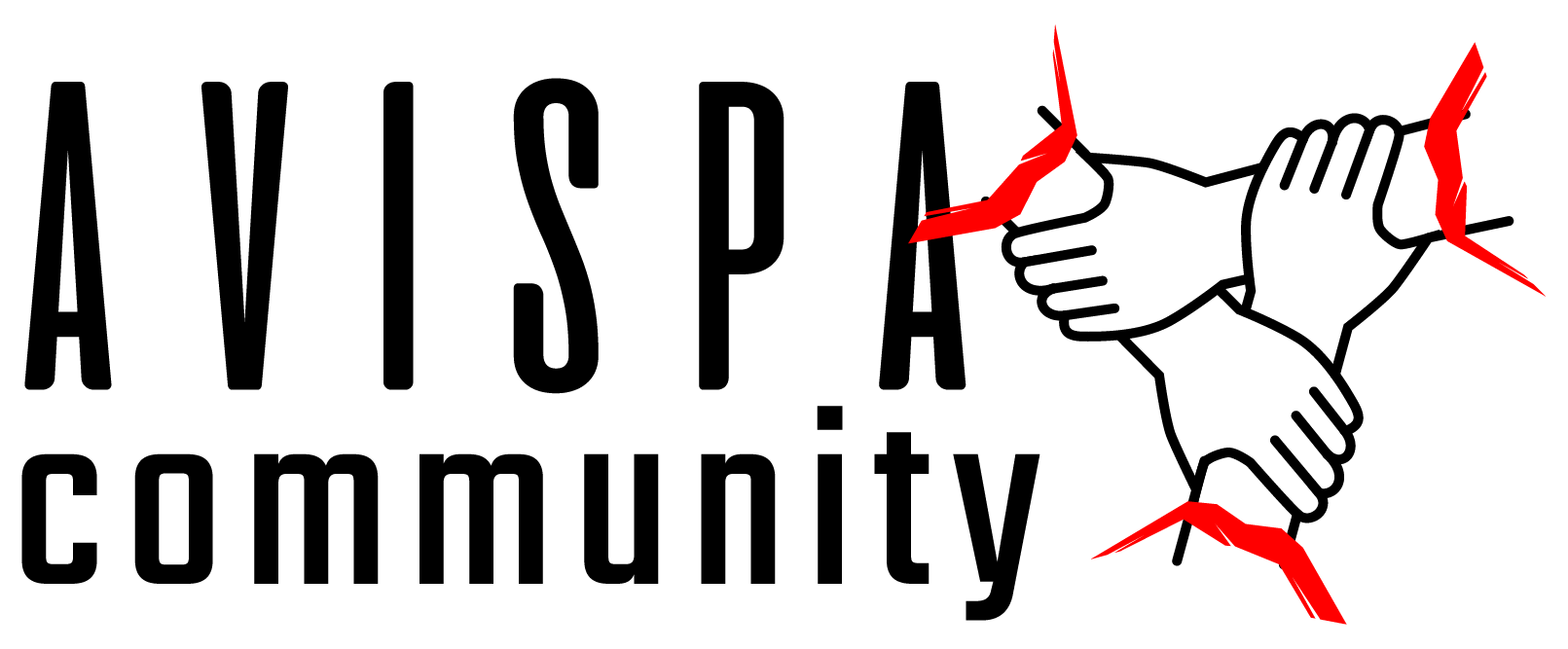In mid-August, in the original town of San Gregorio Atlapulco, in the Xochimilco district of Mexico City, the Third National Assembly for Water and Life took place. There, the plunder of water, the actors and methods involved in its appropriation, as well as the struggles undertaken by the communities in its defense were central themes.
You may be interested in: Resistance Grows Against Water Privatization in Mexico
The assembly was attended by 834 people from 209 different organizations, collectives, networks, original peoples, Indigenous communities, free media outlets, and individuals from 21 states of Mexico, as well as guests from 9 countries.
Participants pointed out the tactics being used to impose the plunder of water. Among them are the manipulation and division of communities, privatization and commodification, as well as strategies of remunicipalization. Also, the concessions “that privilege private companies and industry, the cooptation of community water committees, and plans and programs of territorial reorganization,” emphasized the statement from the assembly.

In addition, participants pointed out the various actors who participate in the legitimation of the plunder, among them academics and experts whose discourse is based in concepts like agroecology, environmental conservation, sustainable development, green technologies, and climate justice, “so that the powerful do not get upset, and that they continue providing financing by means of NGO’s and economic stimulus that fragment and divide the communities.”
Wars of Extermination
One of the principle denunciations is the war of extermination against the Zapatista communities in Chiapas, the Nahua community of Ostula in Michoacán, as well as the violence and repression against original peoples of the Valley of Mexico, Tlaxcala, Querétaro, among other geographies.
Through the statement from the event, participants pointed out the violence of paramilitary groups like the Regional Organization of Coffee Growers of Ocosingo (ORCAO), the invasion of governmental programs that cause community destruction and division like “sembrando vida,” the forced displacement of families and entire communities of the Zapatistas Support Bases, as well as the imprisonment of Manuel Gómez Vázquez, and the assassination attempt against Jorge López Santiz, events that have the Zapatista Caracoles in Chiapas on high alert.
They also referred to the disappearance and assassination of the Indigenous Nahua, Lorenzo Froylán de la Cruz Ríos, member of the Communal Guard of Santa María Ostula, in the municipality of Aquila, Michoacán, whose body was found with signs of torture after nine days of his disappearance, at the beginning of August.
“Those materially responsible, who enjoy impunity and complicity from the federal and state governments are members of the Jalisco New Generation Cartel, along with the narco-government of Michoacán, led by the governor, Alfredo Ramirez Bedolla, who recently proclaimed the community guard to be illegal. This represents a new repressive blow, in addition to the eviction order from the Local Agrarian Court 38, as well as the order military presence in the autonomous territory of Santa María Ostula,” the statement explains.
You may be interested in: Indigenous Nahuas in Michoacán Respond to the Threat of Criminalization of their Communal Guard
Another case mentioned is the community of Calpulalpan, Tlaxcala, where in May of this year, women, children, and elders suffered physical and psychological repression for their struggle in defense of water. They also demanded the liberation of the land defenders, Raymundo Cahuatzi Meléndez and Saúl Rosales Meléndez, from the community of San Pedro Tlalcuapan, Tlaxcala, as well as an end to the water law initiative in Tlaxcala.
They reiterated the demand for an end to the systematic violence in Querétaro against people who defend water, springs, and territory, “as is the case of the community of Escolásticas, who were brutally repressed on June 13. We denounce the intensification of violence following the approval of the law of water service concessions in Querétaro. We demand its repeal and elimination.”

They denounced that, in the original towns of the valley of Mexico, like Xochimilco, Tláhuac, Milpa Alta, Iztacalco and Coyoacán, there are also experiences of extermination. There, women are affected by the imposition of mega urban, habitational, and commercial complexes, “that steal our water, quintupling our working hours, destroying our knowledge, and taking away our autonomy, causing greater sexual and economic violence against us until culminating in the deplorable increase in femicides of campesino women. However, thanks to the women who struggle and resist, our ancestral feminisms are rising up,” sustained the declaration.
They highlight the cases of gender violence that women from the communities of Xochimilco face on part of the Mayor’s office, “against women traditional authorities of San Gregorio Atlapulco, as well as women of the Autonomous Council of Government in Xochimilco (San Luis Tlaxialtemalco), who have been slandered through social networks, beating us physically, socially, and psychologically, with death threats and incitements to lynching,” they accuse.
As a whole, participants demanded an end to the criminalization against Patricia González Guzmán, President of the Pro-Cemetery Committee of San Gregorio Atlapulco, as well as an end to the plunder of water, land, and territory of all the original peoples of the region, for which they demand the restauration of the natural water cycle in the micro-basin of Tláhuac-Xochimilco, Milpa Alta-Chalco.
Actions
They assured that they will continue exercising and strengthening their right to self-determination, the pathway toward autonomy. “The resistance and the rebellions are the tools to recuperate our history, our territory, our mother earth and life. As communities, we will recuperate our cosmovision and spirituality that they have stolen from us. We also ratify that, we will not surrender, we will not sell out, we will not compromise.”
At the end of the Third National Assembly for Water and Life, a series of actions were agreed upon, including a subsequent meeting in Tlaxcala between the months of February and March of 2024. They also called for protests against the National Water Commission on September 25 of this year, as well as participation in the national mobilization against the war on Zapatista communities for October 12.
See the full declaration from the assembly here.


